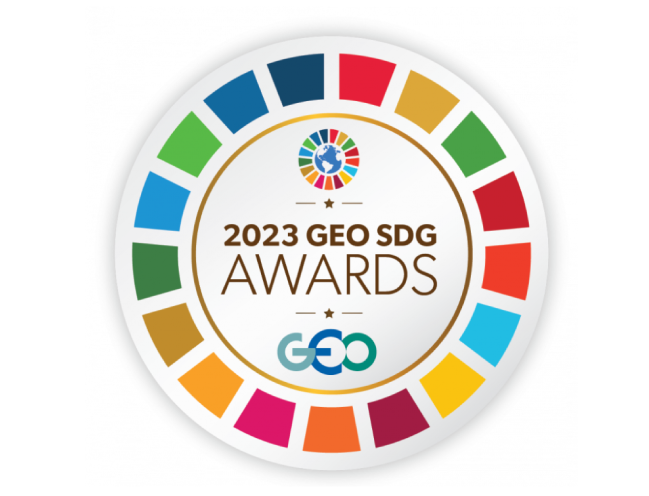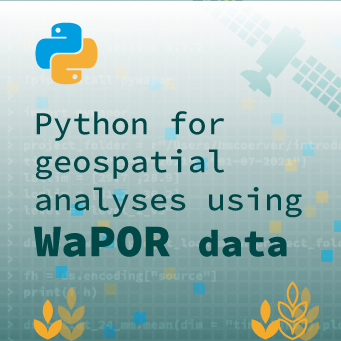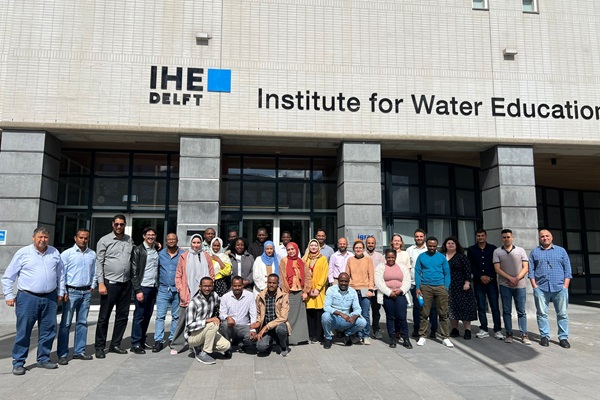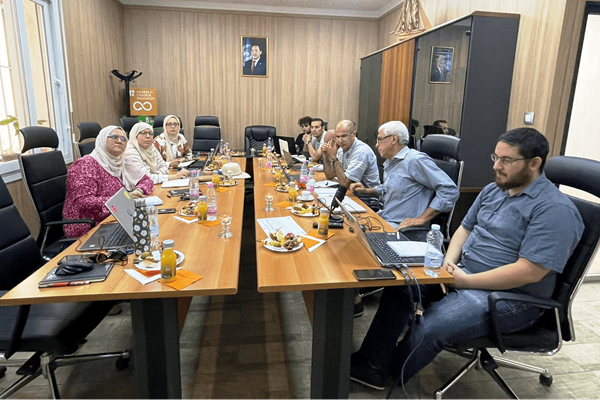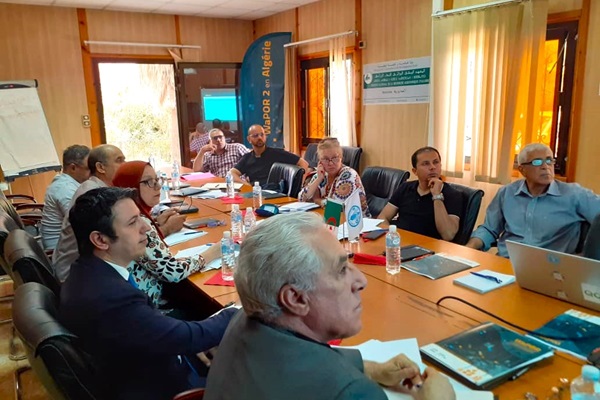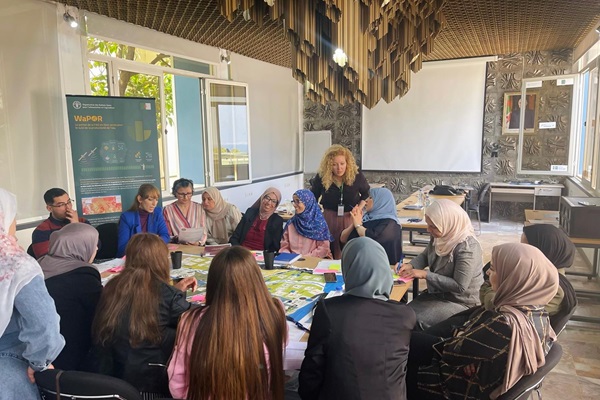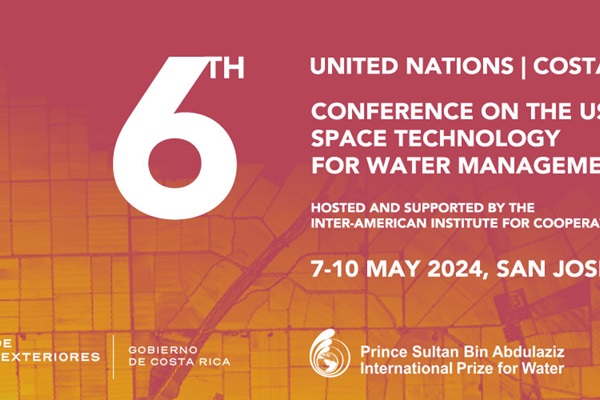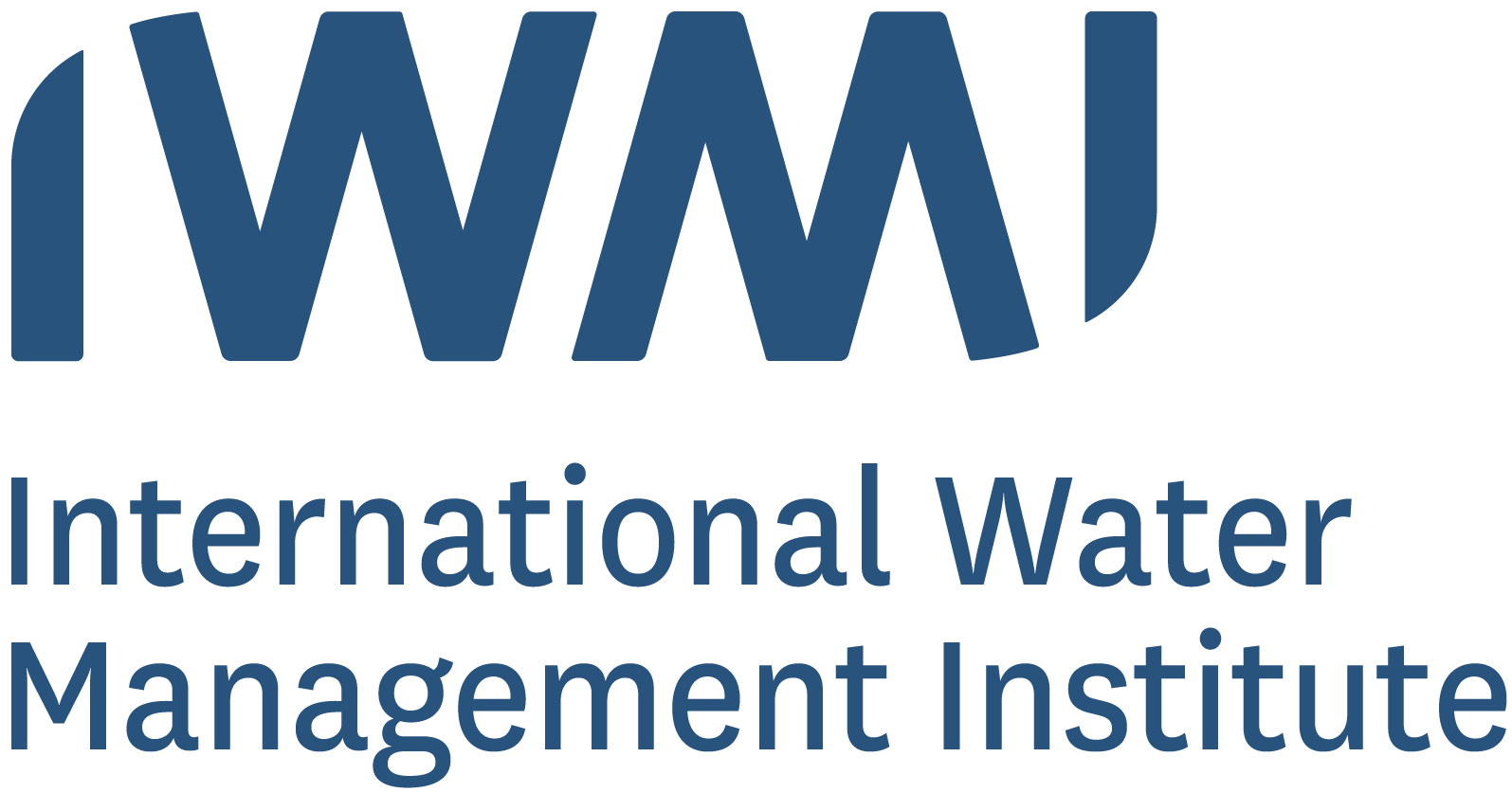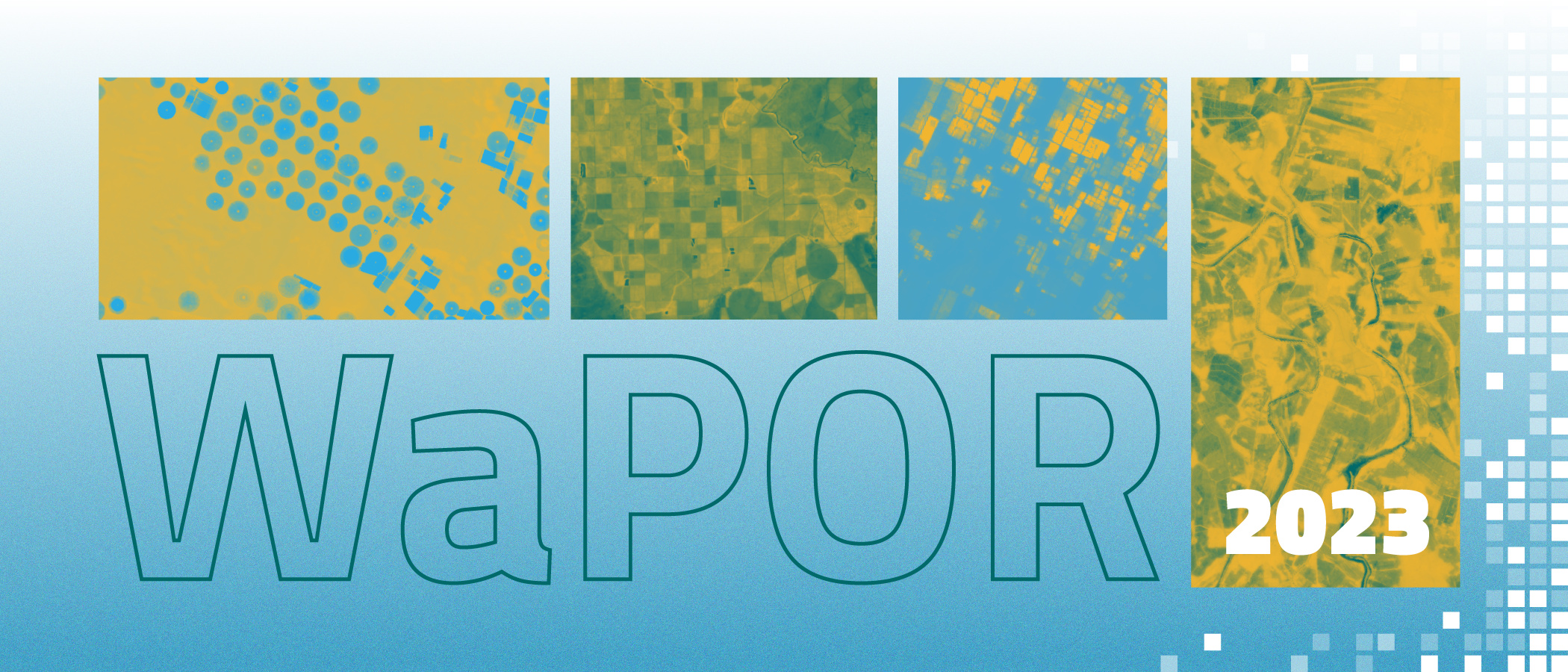
Explore uses and applications of WaPOR data:
Share with us the work that you or your organization have done using WaPOR data to integrate it into this catalogue.Submit an entry to the catalogue here.
The FAO has developed a publicly accessible near real time database using satellite data that allows the monitoring of agricultural water productivity at different scales.
This database is the backbone of the WaPOR project that, now in its second phase, works with ten partner countries to build their capacity in the use of WaPOR data for its different applications, and to generate solutions to local challenges linked to water and land productivity as well as water management.
Head here to find out who are the partners that make WaPOR possible.
Accessing WaPOR data
New WaPOR portal
WaPOR data can also be found on:
and through other means. Find out more.
Latest news and updates
Highlighted publications and events
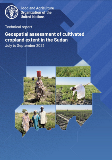
Geospatial assessment of cultivated cropland extent in the Sudan: July to September 2023
11/2023
A rapid assessment was conducted in July, August, and September 2023 to estimate the extent of cultivated cropland in Sudan, considering the disruption caused by armed conflict, using geospatial data to inform immediate and long-term food security management.
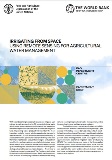
Irrigating from space: using remote sensing for agricultural water management
03/2023
This brief was produced by the FAO Investment Center under the FAO-World Bank Cooperative Programme and proposes concrete applications of WaPOR data in irrigation management by exploring the case of the Bekaa Valley.
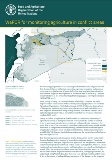
WaPOR for monitoring agriculture in conflict areas
12/2020
In periods of conflict, the mechanisms for collecting agricultural data can be disrupted as it might be too unsafe for data to be collected in-situ, or crucial data-collecting infrastructure might be damaged. In such cases, remote sensing data (or earth observations data) can constitute a viable data source to turn to as an alternative or a complement. This case study explores the use of WaPOR data to monitor agricultural activity in conflict areas by focusing on the use of WaPOR data in Syria.
Sponsorship and partnerships:
The WaPOR project and the WaPOR database are made possible thanks to funding from:Find out more in the dedicated partner's page.

